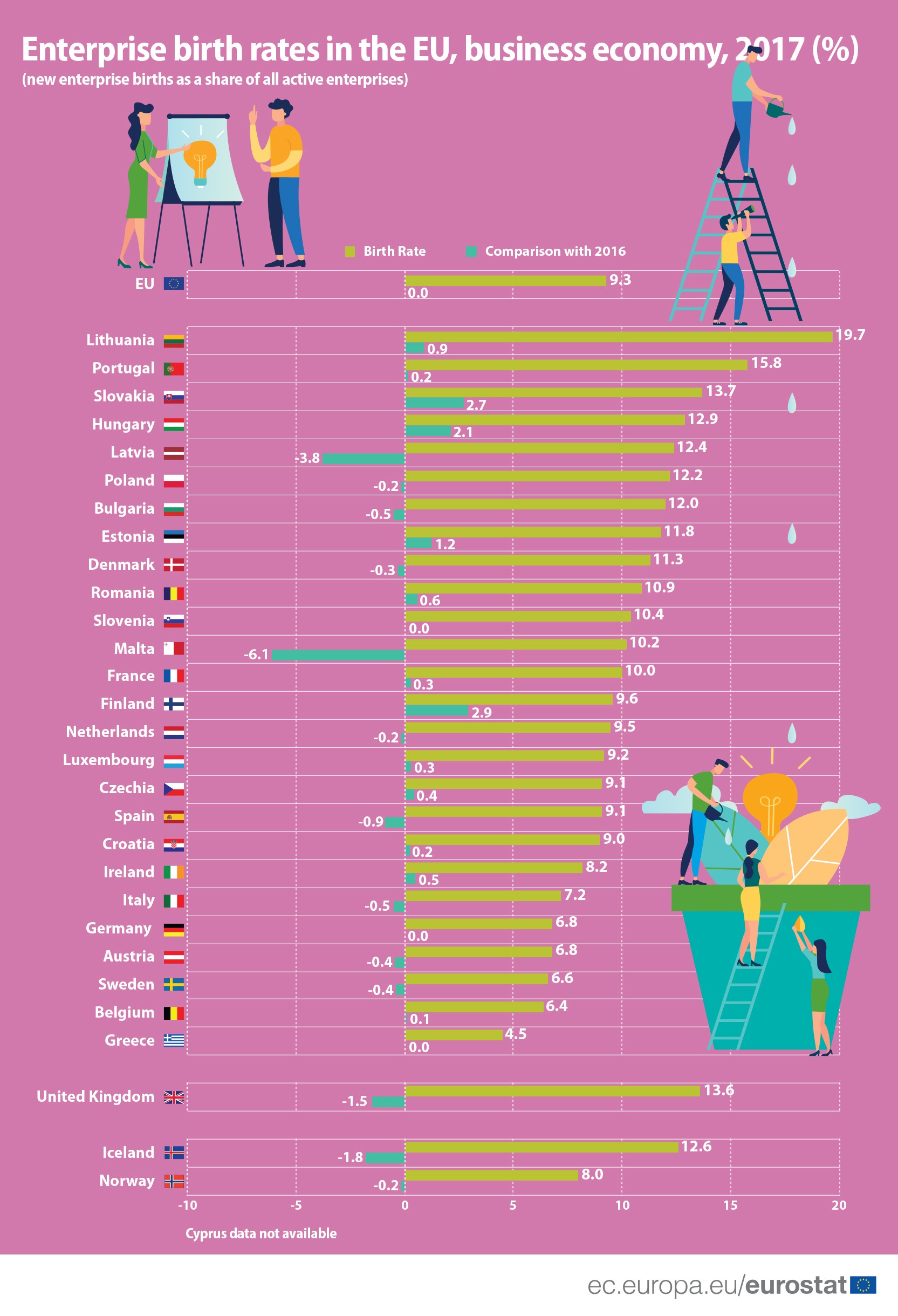In 2017, the number of new enterprise births in the European Union (EU) as a proportion of the total number of active EU enterprises stood at 9.3 %. This rate remained stable compared with 2016 (9.3%), but it was slightly higher than the rate recorded in 2012 (9.0%).
The employment generated by these newly created enterprises stood at 2.4% of total employment in the EU in 2017, ranging from 5.2% in Portugal to 1.2% in Germany and the Netherlands.
Enterprise birth rates highest in Lithuania, lowest in Greece
The enterprise birth rates varied across EU Member States in 2017. The highest rates were observed in Lithuania (19.7%), Portugal (15.8%), Slovakia (13.7%), Hungary (12.9%) and Latvia (12.4%), while the lowest rates were recorded in Greece (4.5%), Belgium (6.4%), Sweden (6.6%), Germany and Austria (both 6.8%).
Enterprise birth rates post largest gain in Finland, greatest decline in Malta
Compared with 2016, the largest increases in the enterprise birth rates were recorded in Finland (2.9 pp), followed by Slovakia (2.7 pp), Hungary (2.1 pp), Estonia (1.2 pp) and Lithuania (0.9 pp), while the highest decreases were observed in Malta (-6.1 pp), Latvia (-3.8 pp), Spain (-0.9 pp), Bulgaria and Italy (both -0.5 pp) as well as Austria and Sweden (-0.4 pp).








Leave a Reply